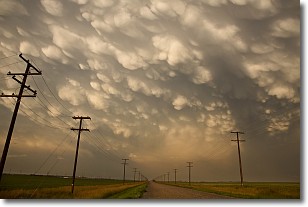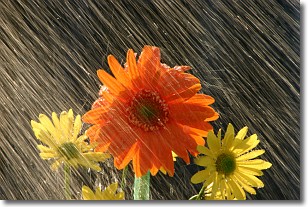Weather Alerts for California
1. Extreme Heat Warning for: Coalinga - Avenal; Fresno-Clovis; West Side Mountains South of 198; Buena Vista; Bakersfield; South End San Joaquin Valley; Fresno-Tulare Foothills; South End Sierra Foothills
2. Extreme Heat Warning for: Cuyama Valley; Santa Clarita Valley; Santa Lucia Mountains; Southern Salinas Valley; San Luis Obispo County Interior Valleys; San Luis Obispo County Mountains; Santa Ynez Valley; Santa Barbara County Interior Mountains; Western Santa Monica Mountains Recreational Area; Calabasas and Agoura Hills; Western San Fernando Valley; Eastern San Fernando Valley; Southeastern Ventura County Valleys; Santa Susana Mountains; Southern Ventura County Mountains; Northern Ventura County Mountains; Interstate 5 Corridor; Western San Gabriel Mountains and Highway 14 Corridor; Eastern San Gabriel Mountains; Western Antelope Valley Foothills; Eastern Antelope Valley Foothills; Antelope Valley; Los Angeles County San Gabriel Valley
3. Extreme Heat Warning for: Santa Ynez Mountains Western Range; Santa Ynez Mountains Eastern Range; Los Angeles County Inland Coast including Downtown Los Angeles; Eastern Santa Monica Mountains Recreational Area
4. Extreme Heat Warning for: Western Siskiyou County; Central Siskiyou County
5. Flash Flood Warning for: Imperial, CA
6. Flash Flood Warning for: Imperial, CA
7. Flash Flood Warning for: Mariposa, CA; Tuolumne, CA
8. Flash Flood Warning for: Tulare, CA
9. Flash Flood Warning for: Tuolumne, CA
10. Flood Advisory for: Fresno, CA
11. Flood Advisory for: Lassen, CA
12. Flood Advisory for: Lassen, CA; Plumas, CA; Sierra, CA; Washoe, NV
13. Flood Advisory for: Plumas, CA
14. Flood Advisory for: Riverside, CA
15. Flood Advisory for: Tuolumne, CA
16. Flood Watch for: Greater Lake Tahoe Area; Greater Lake Tahoe Area; Greater Reno-Carson City-Minden Area; Northern Washoe County
17. Flood Watch for: Mono; Mineral and Southern Lyon Counties
18. Flood Watch for: Yosemite NP outside of the valley; Upper San Joaquin River; Kaiser to Rodgers Ridge; Kings Canyon NP
19. Heat Advisory for: Lake Casitas; Ojai Valley; Central Ventura County Valleys
20. Heat Advisory for: West Side of Fresno and Kings Counties; Caruthers - San Joaquin - Selma; Buttonwillow - Lost Hills - I5; Delano-Wasco-Shafter; Hanford - Corcoran - Lemoore; Visalia - Porterville - Reedley; Southeast San Joaquin Valley; Kern River Valley
21. Red Flag Warning for: Shasta-Trinity National Forest in Siskiyou County; Umpqua National Forest; Western Rogue Basin including the Illinois Valley; Eastern Rogue Valley
22. Red Flag Warning for: Trinity
23. Red Flag Warning for: Western Klamath National Forest; Central Siskiyou County Including Shasta Valley; Siskiyou County from the Cascade Mountains East and South to Mt Shasta; Modoc County Except for the Surprise Valley; Siskiyou Mountains; Southern Oregon Cascades; Klamath Basin and the Fremont-Winema National Forest; South Central Oregon Desert including the BLM Land in Eastern Lake and Western Harney Counties
24. Red Flag Warning for: Western Klamath National Forest; Central Siskiyou County Including Shasta Valley; Siskiyou County from the Cascade Mountains East and South to Mt Shasta; Modoc County Except for the Surprise Valley; Siskiyou Mountains; Southern Oregon Cascades; Klamath Basin and the Fremont-Winema National Forest; South Central Oregon Desert including the BLM Land in Eastern Lake and Western Harney Counties
25. Special Weather Statement for: Fresno-Tulare Foothills; South End Sierra Foothills; South End of the Lower Sierra; South End of the Upper Sierra
26. Special Weather Statement for: South End San Joaquin Valley; Tehachapi; Grapevine; Frazier Mountain Communities
27. Special Weather Statement for: Western Siskiyou County
28. Special Weather Statement for: Yosemite NP outside of the valley
Want more detail? Get the Complete 7 Day and Night Detailed Forecast!
Current U.S. National Radar--Current
The Current National Weather Radar is shown below with a UTC Time (subtract 5 hours from UTC to get Eastern Time).

National Weather Forecast--Current
The Current National Weather Forecast and National Weather Map are shown below.

National Weather Forecast for Tomorrow
Tomorrow National Weather Forecast and Tomorrow National Weather Map are show below.

North America Water Vapor (Moisture)
This map shows recent moisture content over North America. Bright and colored areas show high moisture (ie, clouds); brown indicates very little moisture present; black indicates no moisture.

Weather Topic: What are Mammatus Clouds?
Home - Education - Cloud Types - Mammatus Clouds
 Next Topic: Nimbostratus Clouds
Next Topic: Nimbostratus Clouds
A mammatus cloud is a cloud with a unique feature which resembles
a web of pouches hanging along the base of the cloud.
In the United States, mammatus clouds tend to form in the warmer months, commonly
in the Midwest and eastern regions.
While they usually form at the bottom of a cumulonimbis cloud, they can also form
under altostratus, altocumulus, stratocumulus, and cirrus clouds. Mammatus clouds
warn that severe weather is close.
Next Topic: Nimbostratus Clouds
Weather Topic: What is Precipitation?
Home - Education - Precipitation - Precipitation
 Next Topic: Rain
Next Topic: Rain
Precipitation can refer to many different forms of water that
may fall from clouds. Precipitation occurs after a cloud has become saturated to
the point where its water particles are more dense than the air below the cloud.
In most cases, precipitation will reach the ground, but it is not uncommon for
precipitation to evaporate before it reaches the earth's surface.
When precipitation evaporates before it contacts the ground it is called Virga.
Graupel, hail, sleet, rain, drizzle, and snow are forms of precipitation, but fog
and mist are not considered precipitation because the water vapor which
constitutes them isn't dense enough to fall to the ground.
Next Topic: Rain
Current conditions powered by WeatherAPI.com




